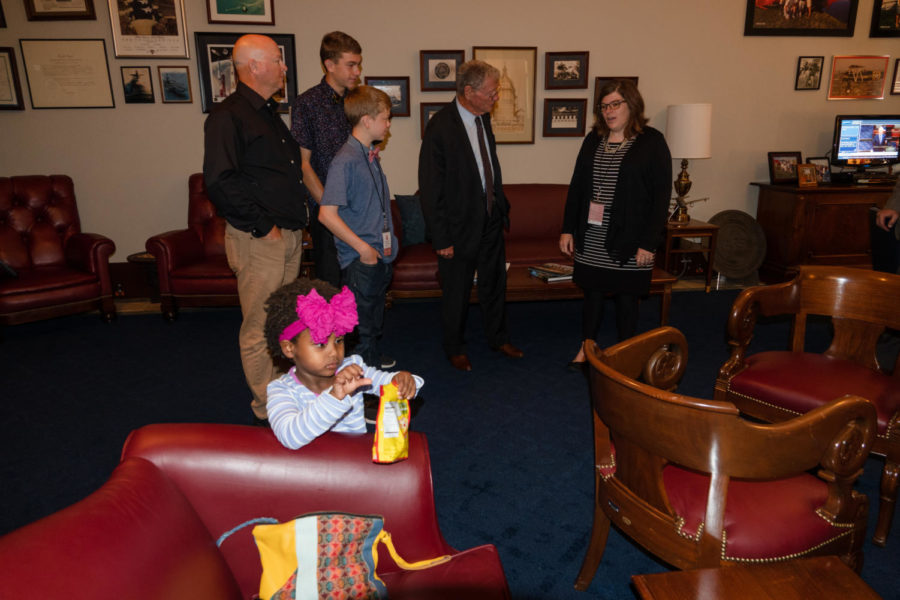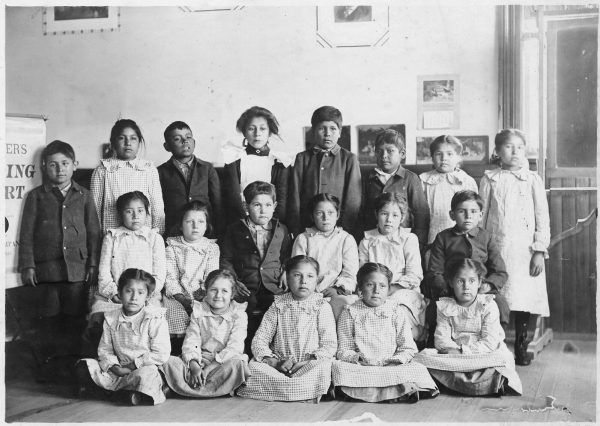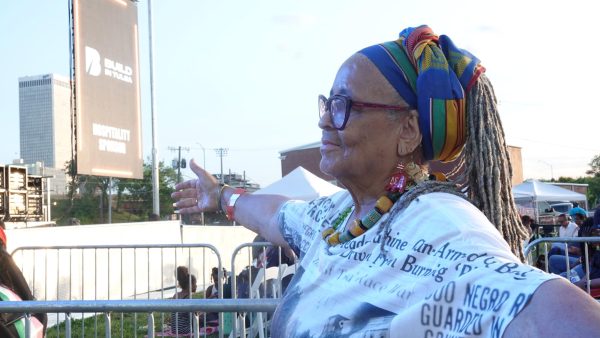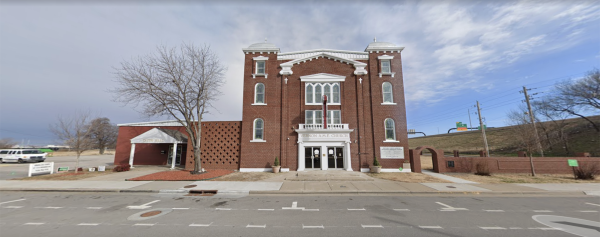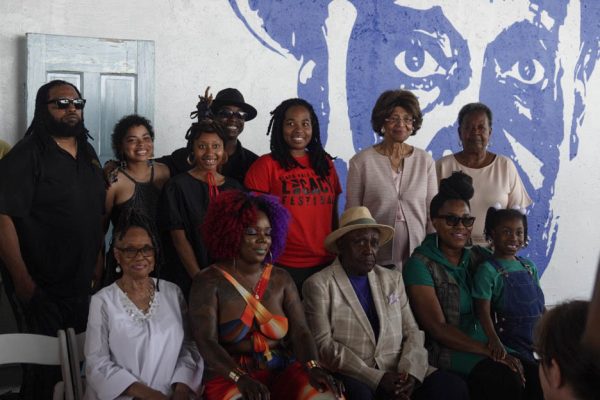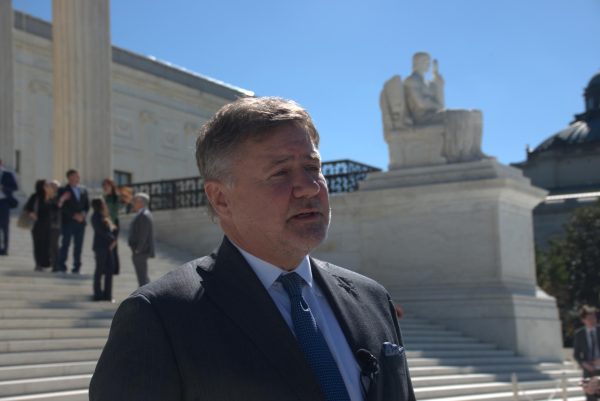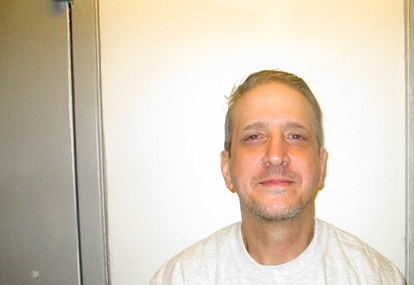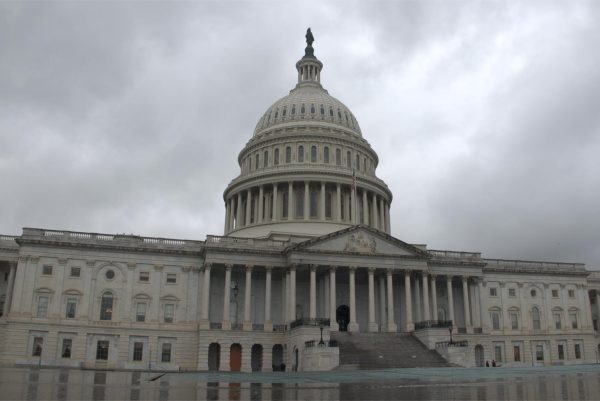‘Worth every sacrifice’: McAlester family honored as Angels in Adoption
3-year-old Addi Belt takes candy from her mom’s bag while her parents speak with Oklahoma Senator Jim Inhofe across the room. Inhofe advocated for the family during the difficult process of adopting Addi from Ethiopia. (Megan Ross / Gaylord News)
WASHINGTON, DC — After six years of international flights, closed adoption agencies and endless costs, the Belt family grew by one member 14 months ago.
When Addi Belt came to McAlester, Oklahoma from Ethiopia in July 2017, she was tiny, with no muscle tone and little ability to walk. Today, she’s at her senator’s office with her family, chasing her brothers around the rotunda and trying to spark games of tag.
This week, the Angels in Adoption program, which recognizes adoption advocates in each state every year, is honoring Addi and her family in Washington, D.C. The adoption program is part of the Congressional Coalition on Adoption Institute, a nearly 20-year-old nonprofit agency that works to eliminate international adoption barriers.
Oklahoma Senator Jim Inhofe selected the Belts for recognition, but the family’s Sept. 25 visit with the senator is just the latest piece of the family’s relationship with Inhofe over the past two years.
The Belts began the adoption process in 2011, but weren’t matched with their daughter till July 2015. Addi wouldn’t come home for two more “excruciating” years, said her mother, Kelli Belt.
In 2016, the family went to Inhofe’s office and talked through their situation with the senator’s chief of staff, prompting the senator to work to speed along their adoption process. One of Inhofe’s granddaughters was adopted from Ethiopia, making the issue is a personal one for the senator.
“Senator Inhofe has an amazing relationship with the country of Ethiopia having an adopted granddaughter from Ethiopia,” Kelli said. “He does a lot of mission work in-country…he advocated unbelievably behind the scenes for us and hundreds of other adopted families who were stuck.”
While Inhofe’s office offered valuable assistance with expediting the process, Addi’s father, Lloyd Belt, said adoption was still a grueling undertaking.
The six years were riddled with corruption and ever-mounting expenses. Lloyd had to be fingerprinted on five occasions, a process that cost $500 each time. The family’s first adoption agency was shut down for involvement in human trafficking. International adoption from Ethiopia shut down at the beginning of this year after several years of decreased adoptions from the country and the 2013 death of one Ethiopian child in Seattle.
As an Oklahoma history teacher, Lloyd said it took a year and half’s worth of his educator salary to finance Addi’s adoption. This year’s teacher pay raise — $300 more a month for Lloyd — is just a drop in the bucket for the family of five.
“We’re in Oklahoma, and there’s sacrifices that have to be made,” Lloyd said.
Lloyd wants to continue his work through Addi’s time in elementary school so he can teach his daughter as he did his sons, but said he will eventually move on to a job where he can “make money.” Kelli said while the sacrifice has been tremendous — both financially and emotionally — the years of waiting are what created the family the Belts are today.
“It’s 100 percent worth every sacrifice, every lost night’s sleep in those two years of waiting, every penny — it’s worth it to see the fruit of those actions,” Kelli said. “Every child deserves a family. We are her family.”
Gaylord News is a Washington reporting project of the Gaylord College of Journalism and Mass Communication at the University of Oklahoma.
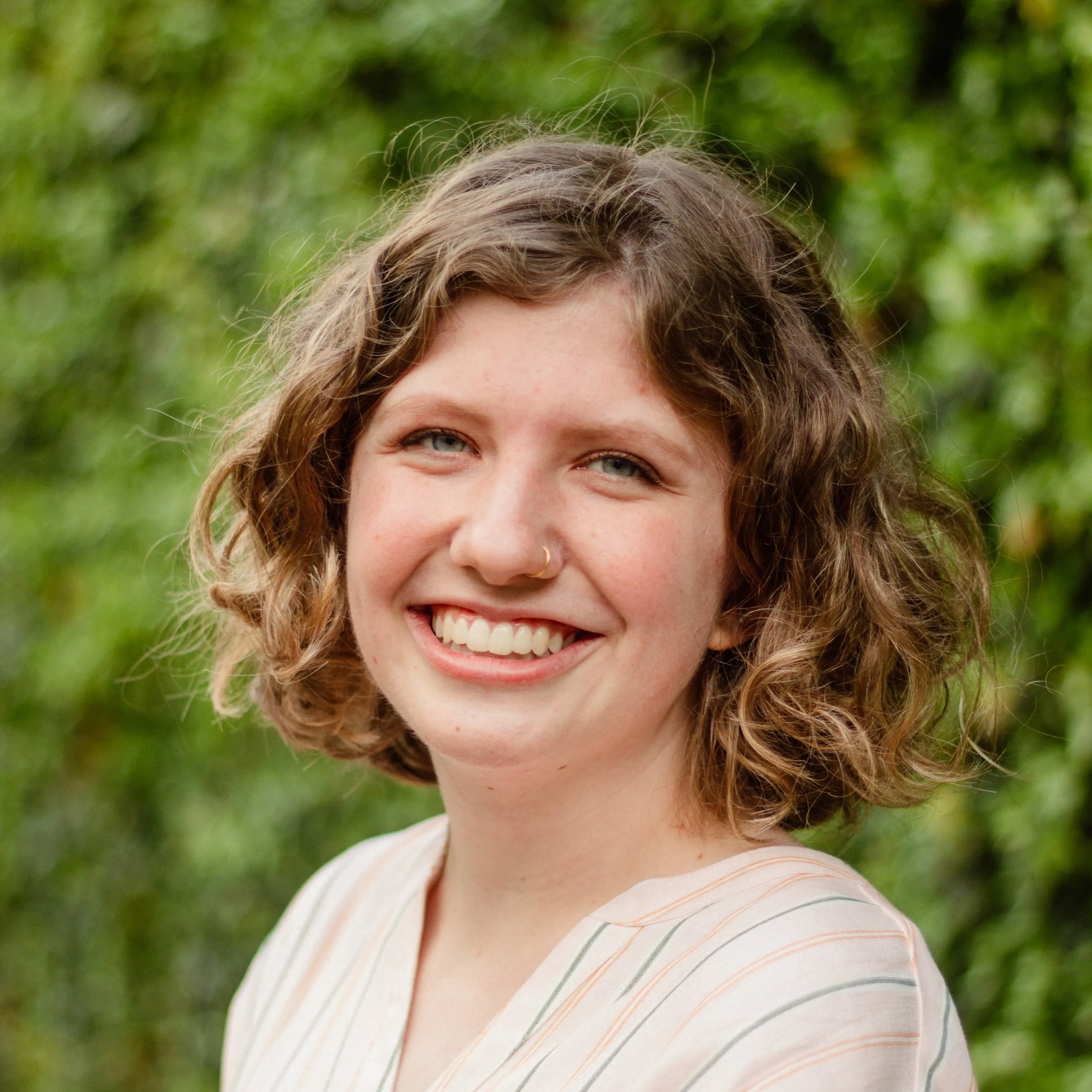
is a print journalism senior and editor of the OU Daily, the University of Oklahoma's independent student publication. She reported in Washington, D.C., for Gaylord News in the fall 2018 semester.

